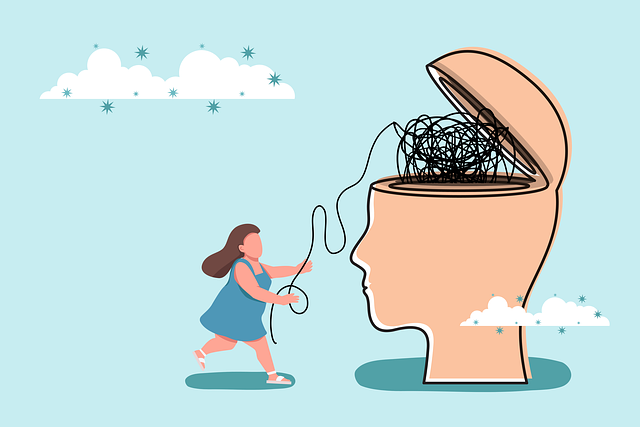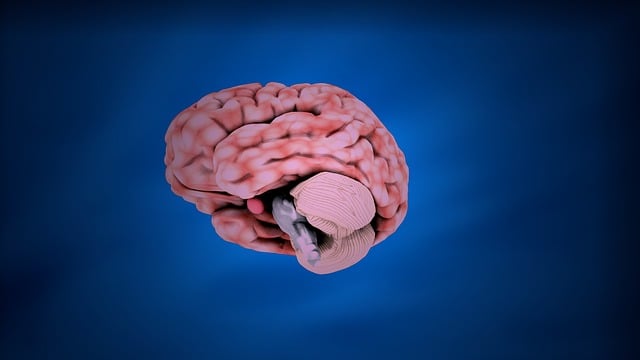Crisis intervention skills are vital for therapists supporting adolescent teens, offering immediate help during severe emotional crises. Tailored therapy addresses unique teen challenges, focusing on coping skills, positive thinking, and stigma reduction to create safe communication spaces. Effective communication, including active listening and non-stigmatizing language, empowers teens to express struggles without judgment. Evidence-based practices like CBT and trauma-focused care post-crisis support help process experiences and develop resilience, preventing burnout among both therapists and clients. Integrating well-being initiatives for therapists ensures holistic therapy, enhancing long-term recovery for adolescent teens.
“In times of crisis, effective intervention can be a lifeline for adolescent teens. This comprehensive guide offers therapists and clinicians invaluable strategies to navigate and support young individuals during intense emotional moments. From understanding the core principles of crisis intervention to mastering communication techniques and implementing evidence-based stabilization methods, this article equips professionals with the tools to make a profound difference. Discover key assessment factors, post-crisis care, and best practices in therapy for adolescent teens, empowering therapists-clinicians to provide exceptional support.”
- Understanding Crisis Intervention: A Brief Overview for Therapists-Clinicians
- Assessing Adolescent Teens During Crises: Key Factors to Consider
- Effective Communication Strategies in Crisis Intervention Therapy
- Evidence-Based Interventions for Teen Emotional Stabilization
- Post-Crisis Support and Follow-Up Care for Adolescents
Understanding Crisis Intervention: A Brief Overview for Therapists-Clinicians

Crisis intervention is a critical skill for therapists and clinicians working with adolescent teens. It involves providing immediate and short-term support to individuals experiencing a severe crisis, such as suicidal ideation, trauma, or acute emotional distress. Understanding the nuances of crisis intervention is essential in therapy for adolescent teens, who often face unique challenges related to mental illness stigma reduction efforts and peer pressure.
Therapists-clinicians play a vital role in guiding youth through these intense situations. This process requires active listening, empathy, and the ability to de-escalate emotions. By incorporating techniques like mindfulness meditation into their practice, therapists can enhance their crisis intervention skills and reduce burnout prevention, fostering a safe space for adolescents to express their feelings without judgment. Effective crisis intervention not only alleviates immediate distress but also equips teens with coping strategies for future challenges.
Assessing Adolescent Teens During Crises: Key Factors to Consider

When assessing adolescent teens during crises, several key factors come into play for therapists and clinicians providing therapy for adolescent teens. It’s crucial to understand that teens often express themselves differently than adults, influenced by developmental stages and peer dynamics. Therefore, therapy for adolescent teens must be tailored to their unique needs and contexts.
Factors such as coping skills development, positive thinking, and the presence of underlying mental illness should be carefully considered. Additionally, mental illness stigma reduction efforts are vital to creating a safe and supportive environment where teens feel comfortable discussing their struggles openly. By acknowledging these elements, therapists can better navigate the complexities of adolescent crises and facilitate more effective therapy for adolescent teens.
Effective Communication Strategies in Crisis Intervention Therapy

In crisis intervention therapy for adolescent teens, effective communication strategies are paramount to building trust and facilitating positive outcomes. Therapists-clinicians should employ active listening techniques, encouraging clients to verbalize their feelings and experiences openly. Reflecting on and paraphrasing what the teen expresses demonstrates empathy and helps clarify any misunderstandings. This open dialogue creates a safe space where adolescents feel comfortable discussing their struggles without fear of judgment, fostering vulnerability essential for healing.
Mental illness stigma reduction efforts also play a significant role in crisis intervention. Therapists-clinicians can challenge stereotypes and misconceptions by using non-stigmatizing language and sharing resources that promote understanding and acceptance. Self-awareness exercises and coping skills development are integral components of this process. By helping teens recognize their triggers and providing them with healthy coping mechanisms, therapists empower adolescents to navigate crises independently and build resilience for the future.
Evidence-Based Interventions for Teen Emotional Stabilization

When it comes to stabilizing the emotions of adolescent teens during crises, evidence-based interventions have proven highly effective. One such strategy is therapy for adolescent teens, which focuses on building resilience and coping mechanisms. Through techniques like cognitive behavioral therapy (CBT), therapists help teens identify and challenge negative thought patterns, promoting a more positive outlook. By fostering self-awareness exercises, adolescents learn to recognize their emotions and express them healthily, preventing escalation.
Additionally, integrating practices for depression prevention and burnout prevention into the therapeutic process is vital. This might include teaching mindfulness techniques, encouraging physical activity, and establishing supportive networks. Such interventions empower teens with tools to manage stress and maintain emotional balance, ensuring they have the resources needed to navigate crises effectively. For therapists and clinicians, staying updated on these evidence-based practices is crucial to providing the best care for adolescent clients.
Post-Crisis Support and Follow-Up Care for Adolescents

Post-crisis support is a critical component of crisis intervention strategies for adolescents. Following a traumatic event, young individuals often require specialized therapy to process their experiences and develop coping mechanisms. Therapy for adolescent teens should focus on creating a safe and non-judgmental environment where they can openly discuss their feelings and fears. Clinicians play a vital role in providing this space, utilizing evidence-based practices such as cognitive-behavioral therapy (CBT) or trauma-focused care to help adolescents make sense of the crisis and begin the healing process.
Ensuring continuous support through regular check-ins and follow-up care is essential to prevent burnout among both healthcare providers and adolescent clients. Similar to Burnout Prevention Strategies for Healthcare Providers, therapists must also prioritize their well-being to effectively serve their young patients. Mental Health Awareness initiatives can foster an environment where adolescents feel comfortable seeking help and where therapists are equipped with the necessary tools to navigate complex cases. By integrating Confidence Boosting techniques into therapy sessions, clinicians can empower teenagers to face challenges head-on and build resilience, marking a significant step towards long-term recovery and well-being.
In conclusion, crisis intervention plays a pivotal role in supporting adolescent teens through their most vulnerable moments. By understanding the nuances of this process and employing evidence-based strategies, therapists and clinicians can effectively navigate these crises, foster emotional stabilization, and provide crucial post-crisis support. The guidance outlined in this article equips professionals with the tools to offer compassionate and skilled therapy for adolescent teens, ensuring a brighter and more resilient future for their young clients.








